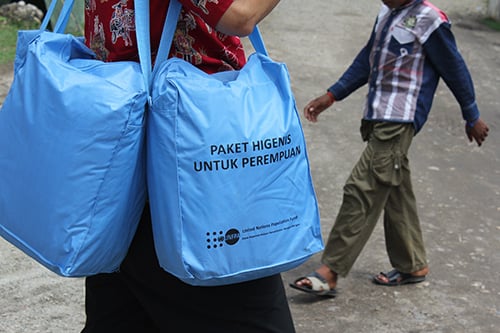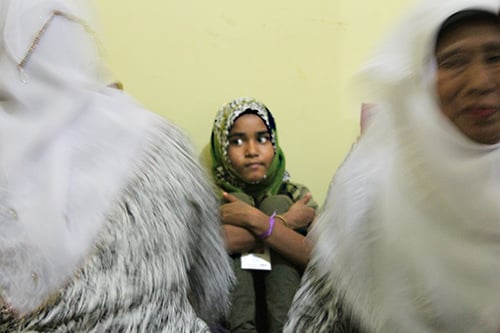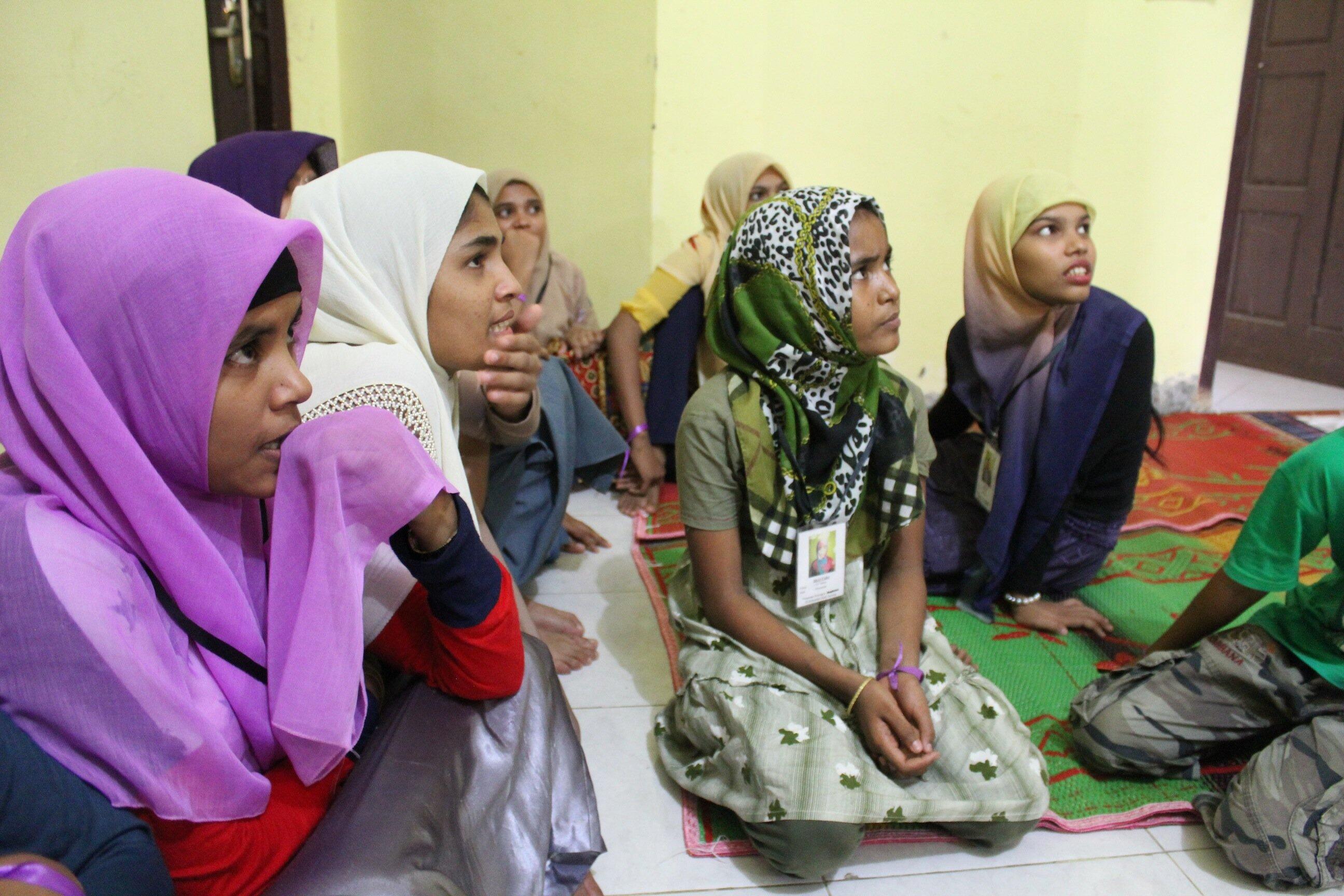KUALA CANGKOI, Aceh, Indonesia – “How far along are you?” a midwife asks a pregnant woman, making a hand gesture over her stomach area.
Without saying anything, the expectant mother puts up one hand.

“Five months,” confirms the aid worker, holding up her own hand in unison.
The woman nods.
“And your age? How old are you?” The woman flashes both hands three times.
“30?” the midwife repeats, imitating the woman’s hand actions.
The woman nods.
Simple and straightforward, these questions provide some of the basic information required to assess the reproductive health needs of women in a humanitarian situation. The expectant mother, Montas, is one of 315 Rohingya refugees stationed in a temporary shelter in the north Sumatran province of Aceh.
They are part of a larger group of nearly 2000 ethnic Rohingya Muslims and Bangladeshi migrants who, according to data from UNHCR, ended up in Indonesia after a failed attempt to reach Malaysia or Australia in search of a better life.
Wiping away her tears, Montas explains – mostly through hand gestures – that she is alone and this is her first child.
Despite the language barrier, obtaining this data is vital to ensure that the health needs of pregnant women are not neglected.
Having spent months at sea, the young woman was rescued by local fishermen off the coast near the city of Lhoksumawe in May, after the captain abandoned the boat she was travelling on. When they spotted this and other boats off the coast, local fishermen were unable to ignore the pleas of the stranded men, women, and children, and towed them to safety.
On 20 May, the Government of Indonesia agreed to provide temporary shelter to the refugees for one year.

Meeting basic needs
In June, UNFPA Indonesia sent a team to visit four of the six camps housing the refugees in Aceh in order to conduct reproductive health, sexual assault and other genderbased violence assessments before determining what steps needed to be taken next.
The mission was also an opportunity for UNFPA to distribute clean delivery kits and dignity kits to women and girls in need.
“Dignity kits are important to hand out to women to make sure that they at least have access to basic necessities such as clean underwear, clothes, soap and sanitary pads,” explains Leny Jakaria, a Humanitarian Focal Point Officer with UNFPA Indonesia, who joined the mission to Aceh.
“During a humanitarian situation like this one, we also need to pay attention to care management. Women and children should be separated from men to ensure they are in a safe and protective environment,” she says. “At one of the camps, more than half of the people were children and we saw that there were a few policewomen working at that particular camp, which was a good sign.”

Supporting midwives on the ground
Since the migrants arrived on shore on the northeast coast of Aceh, a team of local midwives has visited the camps to help ensure pregnant women – one of the most vulnerable groups during any emergency situation – are provided with the health services they need. This includes antenatal care and postpartum care for new mothers and their infants.
“Our priority is to make sure that pregnant women and new mothers are given the right care and receive the necessary checkups,” says Indra Supradewi, Chief of the Educational Department from the Central Board of the Indonesian Midwives Association (IBI), who was part of the UNFPA team to visit the refugee camps.
“We met nine pregnant women on this mission, ranging from the ages of 15 to 30, and they were all at different stages. Some were just a few months pregnant, while one young girl was already at eight months,” she says, adding that there was a referral system in place for the expectant mothers to deliver their baby in a puskesmas
(public health centre) or hospital.
There are 15,000 midwives registered with IBI in Aceh. Ahead of Ms. Supradewi’s ’s visit, the local midwives at four of the six refugee camps had already met most of the pregnant women, not only to provide support and health services, but also to help empower them.
“Along with offering counselling services for the women, we have tried to provide them with activities to engage in, such as sewing,” explains Syafrina, a local midwife who has been visiting the temporary shelter in the city of Langsa.
“We want to open a public kitchen for the women to use so that they can cook food for themselves. We want to empower them and provide specific womenfriendly
spaces at these camps.”


